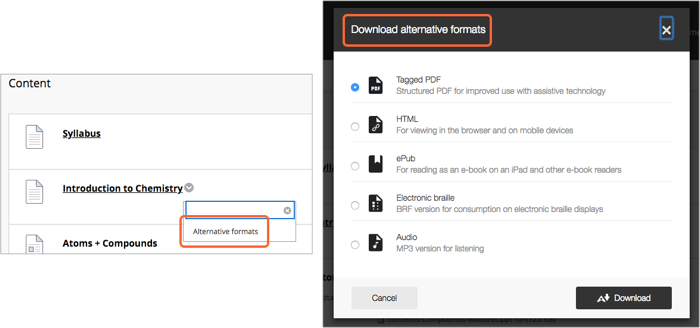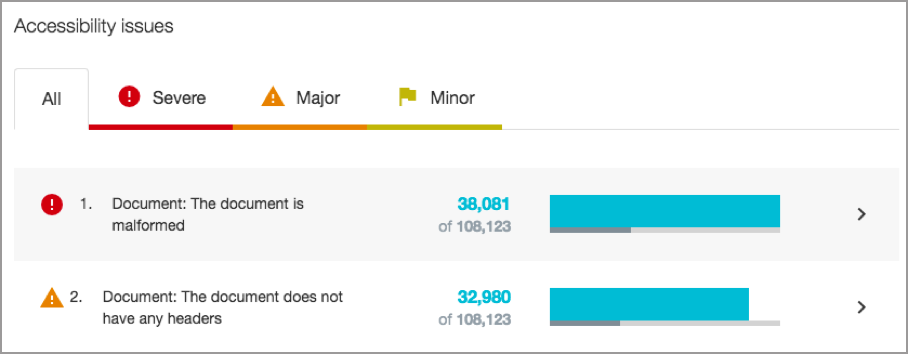Faculty often ask if Blackboard is accessible. While most web-based tools can always be more accessible and easier to use, the basic answer is “Yes, Blackboard is accessible.” The real problem often comes when we upload files and documents to Blackboard that may not be as accessible as they should be. We may not even be aware that the files we uploaded aren’t accessible to students with impairments. Blackboard Ally wants to fix that.
When an instructor uploads a file to myLesley (Blackboard), using the exact same process they currently use, Ally compares the file to a Web Content Accessibility Guidelines Checklist. It then does three things.
For students, Ally automatically converts that file into alternative, accessible formats. Alternative formats include Tagged PDF, HTML, ePub, electronic braille and audio. If the instructor uploads a scanned chapter or article, Ally will convert it to an OCR PDF which can be read as text by a screen reader.

This a proactive and automatic process that happens without the instructor or Disability Services doing anything. Students do not need to self-identify or request alternative versions. The downside is that the quality of these alternative versions can vary. The more complex the original document, the more difficult it is to create a converted document that is useful and easy to navigate by the students who need them.
Therefore Ally also provides guidance to faculty on how to improve the accessibility of the documents uploaded to Blackboard. Each uploaded document receives an accessibility score and red, orange or green icon. Clicking on the icon presents you with information on what accessibility issues are in the document, information on why it is an issue, and links to tutorials on how to make changes to the document.
Ally has let you, the instructor, know that your documents may not be accessible and how to improve their accessibility without the need to attend a training or to have Disability Services reach out to you. You can slowly educate yourself on accessibility and improve not just the documents that are currently in your course, but also all future documents you will create. Over time, you will simply create accessible documents from the beginning because now you know how and how easy it can be.
Lastly, Ally provides an Institutional Report telling the university which courses have inaccessible content and what kinds of content are problematic. This means that the university can target its outreach and training based on our specific issues. One program may have a lot of courses with images and no alternative descriptions. Another’s biggest issue may be that Word documents require headings and subheadings. Instead of offering generic training and support for everyone, we can now reach out to each program and offer training and assistance for the issues they actually are having. The report also allows us to demonstrate our improvement over time.

Ally will be available to all myLesley courses beginning this Fall. Keep an eye out for those accessibility scores on your documents. Ally is also making continuous improvements so don’t be surprised when new features and guidance become available.
If you have questions about Ally or need assistance, email elis@lesley.edu.
